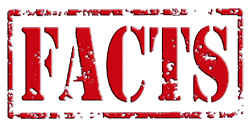Why is golf not a sport?
Golf has long been a topic of debate when it comes to its classification as a sport. While some argue fervently that it is indeed a sport, others maintain that it falls short of the criteria.

In this analysis, we will delve into the reasons why golf is often perceived as not being a sport, examining various aspects from physical exertion to competitiveness.
Lack of Physical Exertion
One of the primary arguments against golf being classified as a sport is its perceived lack of physical exertion. Critics often point out that golfers do not demonstrate the same level of athleticism as athletes in traditional sports like football or basketball. Unlike activities that demand constant movement and physical contact, golf is seen as more leisurely, with players often riding in carts and taking breaks between shots.
Minimal Competitive Element
Another reason why some view golf as not being a sport is its perceived lack of a competitive element. While golf undoubtedly involves competition, opponents do not directly interfere with each other’s performance in the same way as in team sports. Golfers take turns hitting their shots, and the outcome is largely determined by individual skill rather than direct confrontation with opponents.
Accessibility and Social Aspects
Interestingly, golf’s accessibility and social aspects also contribute to the perception of it not being a sport. Unlike many sports that require specialized equipment and facilities, golf can be played by individuals of varying ages and skill levels. Additionally, golf is often associated with networking and socializing, leading some to view it more as a recreational activity than a competitive sport.
Interesting Facts and Historical Insights

Golf originated in Scotland during the 15th century and has since evolved into a globally recognized sport.
The term “golf” is believed to have derived from the Dutch word “kolf,” meaning “club.”
The first recorded golf tournament took place in 1552 in St. Andrews, Scotland.
Golf was popularized in the United States during the late 19th and early 20th centuries, with the formation of prestigious golf clubs and the establishment of professional tournaments – example: the U.S. Open and the Masters Tournament.
Golf has a rich tradition and culture, with iconic figures – example: Jack Nicklaus, Arnold Palmer, and Tiger Woods shaping its history and legacy.
While golf may not fit the traditional mold of a sport in the eyes of some critics, it undeniably requires skill, strategy, and mental toughness. Ultimately, whether golf is considered a sport or not may depend on individual perspectives and interpretations. However, its enduring popularity and global appeal attest to its significance as a competitive and engaging activity.
Who can allow golf to be a sport?

Golf is generally considered a sport by most definitions, recognized and regulated by various sports organizations and governing bodies around the world.
These bodies include:
- Professional Golf Associations
Organizations like the PGA (Professional Golfers’ Association) and LPGA (Ladies Professional Golf Association) oversee professional golf tournaments and players.
- Golfing Governing Bodies
Each country often has its own governing body for golf, example: the United States Golf Association (USGA) or the Royal and Ancient Golf Club of St Andrews (R&A) in the UK, which establish rules and regulations for the sport.
- International Sporting Organizations
Golf is recognized as a sport by international organizations like the International Olympic Committee (IOC) and is included in events – example: the Summer Olympics.
- Public Perception
Ultimately, whether golf is considered a sport can also be influenced by public perception and cultural norms. However, its inclusion in various sporting organizations and events solidifies its status as a sport in the eyes of many.












